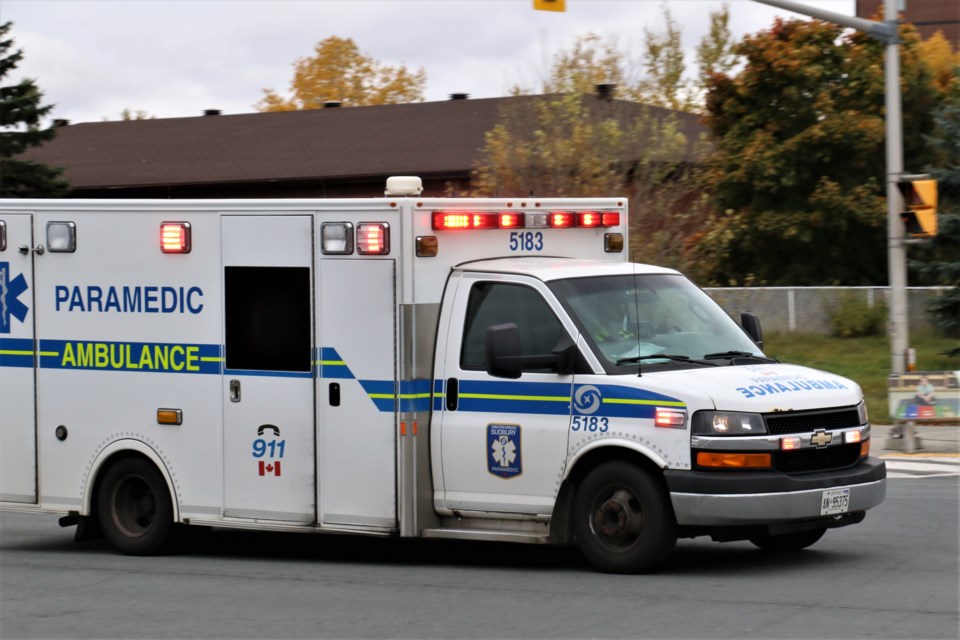Hospital services in Sudbury are being put under additional stress because of the pressures of COVID-19, the fall flu season and the growing number of staff shortages, according to the Canadian Union of Public Employees (CUPE).
That was the message earlier today when OCHU/CUPE (Ontario Council of Hospital Unions & Canadian Union of Public Employees) and unionized members of Greater Sudbury Paramedics Service held a joint news conference in Sudbury.
Bryan Keith, the president of CUPE Local 4705, representing paramedics, among others, said the current staff shortage is preventing local paramedics from being able to take more calls.
"Paramedics in Sudbury have been adversely impacted by the staffing shortages in hospitals. It impacts paramedics’ ability to transfer patients in a timely manner, preventing them from going back out on 911 calls. This lengthens wait times at patients who require an ambulance, often in an emergency," Keith told reporters.
He added that the local paramedic service has not kept up with the need for more staff. Keith said the Greater Sudbury Paramedics service is understaffed.
"The other factor playing a critical role in ambulance response times is the understaffing of Paramedic Services. In Sudbury, staffing levels simply haven't kept pace with demand. In fact we actually haven't seen any increase since 2015," Keith said. "Demand for paramedics continues to increase rapidly. In the first five months of 2022, we have seen an increase of nine per cent call volumes, compared to the same period in 2021," he added.
Keith said in the past two years, ambulance response times have gone up by almost 20 per cent.
"That should not happen. The people of Sudbury should not have long wait times in order to get emergency services. Paramedics need higher staffing levels."
Keith said the local staffing situation was real and affecting the daily work routines for his coworkers.
"Currently paramedics are forced to skip breaks, skip lunches and work forced overtime, just because of the staffing shortages currently with paramedics."
The other downside, Keith said, is that paramedics are getting stressed out, fed up and are quitting their jobs.
"Based on current WSIB data, paramedics account for approximately 15 per cent of all mental stress injuries in Ontario, yet only make up .002 per cent of the workforce, let that sink in," he said.
Keith said 12 local paramedics have left their jobs because of workload or stress concerns in the past year.
Keith said the Ontario government needs to implement some sort of effective staffing strategy to stop the shortage and find ways to keep paramedics on the job, "to make sure that everybody in Sudbury can get an ambulance and paramedics when they're in need."
OCHU/CUPE first vice-president Dave Verch backed up Keith by saying the current Doug Ford government has not responded in any timely manner.
"Right now they're not even acknowledging that there's a crisis in the health-care field," Verch said, adding that additional funding is needed quickly.
"We really need them to step up to the plate. You know money needs to be put into health care and has to be a priority for Ontarians. Certainly Ontarians deserve better. Hospital workers paramedics deserve better and most certainly those patients deserve better," Verch added.
Len Gillis covers mining and health care for Sudbury.com.
